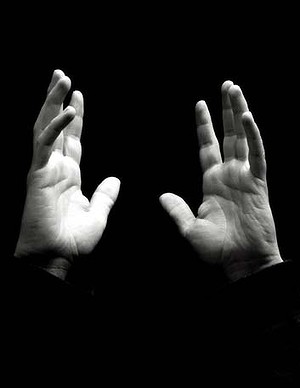Sexual Abuse Crisis Threatens the Very Foundations of Catholicism
By Andrew West
George Pell is an easy target for both liberal critics in the Catholic Church and secularist tormentors in the media. In his recent, defensive press conference, he suggested the church was being singled out as the only institutional offender in the child sex abuse crisis. It was grist to the mill of those who are convinced the cardinal Archbishop of Sydney is making excuses for clerical crime. His insistence that the rite of confession must remain a secret between confessor and penitent - no matter how evil the offence that is revealed - was seemingly more evidence that he was putting the church's reputation and customs ahead of abuse victims. As his brother bishop Geoffrey Robinson conceded, it was painful. Dr Pell is an old-fashioned prelate. He not only toes the Vatican line but, as a key adviser on education, ministry and doctrine, he has helped shape it. One of Dr Pell's long-standing - but not unquestioning - friends calls him "a company man". RMIT University professor Des Cahill has known the cardinal for 50 years. Professor Cahill left the Catholic priesthood in the 1970s to marry and begin a distinguished career as an academic psychologist. Advertisement It's his feeling that for most of Dr Pell's career as a priest, he has been torn by two currents within Catholicism. One current flowed from Vatican II, which began in 1962, towards modernisation and openness. The other current flowed from Dr Pell's conservative teachers at the Pontifical Urban University in Rome, who, in the 1960s, were trying to uphold Vatican authority and doctrinal purity. In the struggle for Dr Pell's heart, the conservatives probably eked out a narrow victory. So, acknowledging Dr Pell's sincere revulsion at child sexual abuse within the Catholic Church, it's reasonable to assume that this crisis has shaken him on another level as well. For a Vatican man who believes that one cannot truly exercise faith without the intermediary institution of the church, the scourge of paedophilia threatens something far more profound than the reputation of the church. It threatens the foundation of Catholicism because it increases the pressure for reforms to structure, practice, even doctrine that would undermine many tenets of Catholic teaching. If the role of the priest in the confessional - where he becomes the conduit for the penitent man or woman's appeal to God for forgiveness - is broken, what then of the Catholic Church's broader role as interpreter of the scriptures? What happens to the church's teaching authority; to its central role in sacraments such as baptism, marriage and the recreation of the last supper that is the mass? Next week the archbishops of the Australian church will meet in Sydney. With the Royal Commission impending, their meeting could be fork-in-the-road stuff. They have already pledged support for the national inquiry. But do they view it as some sort of cleansing fire from which the church will emerge free of deviant people and practices but essentially unreformed? That will be the hope of many traditionalists. But while paedophilia is an act of individual evil, there is a body of scholarship - from people such as Professor Cahill and the psychotherapist Marie Keenan in her landmark study, Child Sexual Abuse and the Catholic Church - that suggests cloistered and repressed environments can magnify the problem. Professor Cahill even fears that without serious structural reform, the Catholic Church is vulnerable to a repeat of the sexual abuse scandal. No matter how much Dr Pell insists otherwise, this crisis is more pronounced in the Catholic Church than other religious institutions. Professor Cahill's study suggests that between 5 and 7 per cent of Catholic priests who passed through Melbourne's Corpus Christi College between the mid 1940s and the mid 1970s have become sex offenders. The child protection expert, Professor Patrick Parkinson of the University of Sydney law school, says abuse within the Catholic Church is six to seven times that of abuse within the other churches combined. The Victoria police numbers suggest it is 10 times the level of abuse among the Anglicans and Salvation Army. These figures cannot be coincidental. They suggest a structural and cultural problem within Catholicism. Bishop Robinson, himself a victim of childhood abuse, wrote in his recent book that the church needed to revisit the question of compulsory clerical celibacy. In its most benign form, it leads to loneliness for often isolated priests. In its worst form, it creates "an unhealthy psychology" that has led to child abuse. The words of people like Des Cahill, Geoffrey Robinson and Marie Keenan - voices from within Catholicism - should focus the minds of Catholic leaders next week. Andrew West is the presenter of Radio National's religion and ethics report.
|
.
Any original material on these pages is copyright © BishopAccountability.org 2004. Reproduce freely with attribution.
